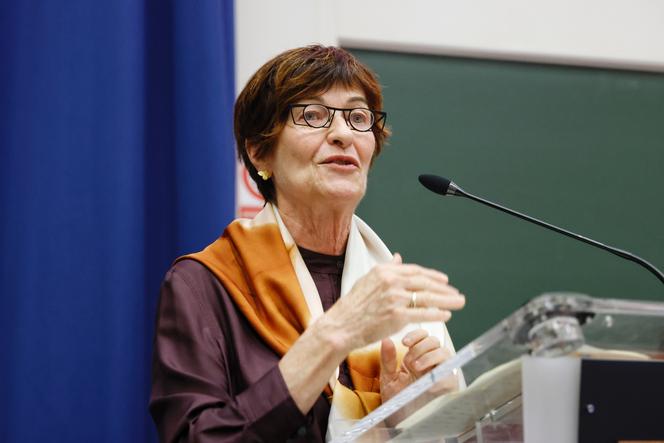


The 12th Le Monde Literary Prize was awarded to Maryline Desbiolles for L'Agrafe ("The Staple"), Wednesday, September 4. The writer's work is rooted in the hinterland of Nice, where she lives. In this latest work, a young girl, Emma Fulconis, runs wild and free through these stony landscapes, until the day a dog bite immobilizes her and prompts her to look into her family's past, as recounted by her uncle, who grew up in a camp for Harkis, Algerians who served as auxiliaries to the French military during the Algerian War. The way in which the author uses her torrential, dancing language to tell this story of multiple fractures was rewarded by the jury. Chaired by Jérôme Fenoglio, director of Le Monde, the jury is made up of journalists working in Le Monde's literary section (Jean Birnbaum, Florent Georgesco, Raphaëlle Leyris and Nicolas Weill) and beyond: Emmanuel Davidenkoff (editorial development), Zineb Dryef (Magazine), Gaëlle Dupont (Environment), Clara Georges (Intimity), Raphaëlle Rérolle (at-large editors), Solenn de Royer (Politics) and Alain Salles (Opinion). L'Agrafe succeeds Triste Tigre ("Sad Tiger"), by Neige Sinno.
I've been a subscriber for a very long time and it's the only paper newspaper I receive. I use it a lot when I'm peeling my vegetables and I love the moment when, as I unfold it, I discover or rediscover articles. I've also written several opinion articles for you, including one on July 15, 2016, after the attack in Nice. I was at the scene. When Le Monde asked me to write, I was feeling so upset that I refused at first. But then I realized it was the only thing I could do. I heard a lot about this text in connection with an attack that many people felt had been treated differently from the others. And, as regards my relationship with Le Monde, it was after reading an interview with Sabine Wespieser that I decided to join her publishing house. In it, she talked about the independence of her company, which was celebrating its 20th anniversary, and I felt the vibrancy and commitment of this formidable woman. I had virtually left my previous publishing house [Seuil] and, on the spot, I sent her a message. She replied immediately, and it all happened in an instant.
The Femina came as a total surprise. What's more, Seuil didn't believe in it, I wasn't in Paris and had to catch a plane in a hurry. I remember Pascal Cherki [then CEO of the publishing house] shouting at me on the phone: "It's the triumph of virtue!"
You have 60.67% of this article left to read. The rest is for subscribers only.
